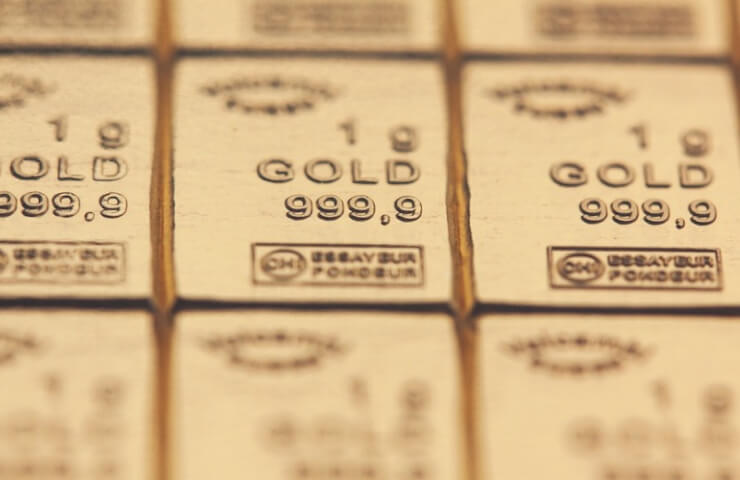Gold rebounded from its biggest weekly drop since June as the war in Ukraine continued to push oil prices higher, fueling global inflation fears and boosting demand for safe haven assets.
Spot gold rose 0.8% to $1,935.30 an ounce by noon ET. US gold futures posted a modest 0.3% gain to trade at $1,935.20 an ounce in New York.
Meanwhile, both the S&P 500 and the Nasdaq 100 fell after posting their best five-day streak since November 2020. West Texas Intermediate oil rose above $110 a barrel as investors assessed the war in Ukraine and tensions in the Middle East.
Rising commodity prices are helping to keep precious metals attractive as a hedge against inflation. Former US Treasury Secretary Lawrence Summers said last week that the Fed needs to raise borrowing costs higher than officials currently project if it wants to bring inflation back under control.
On Monday, Atlanta Federal Reserve Bank President Rafael Bostic said he was ready for more aggressive policy tightening, while targeting six rate hikes for 2022.
"The main fundamental factor that continues to support the rise in gold prices in the medium term remains the risk of stagflation," Calvin Wong, an analyst at CMC Markets in Singapore, told Bloomberg. "The Fed has so far failed to cool future inflation expectations."
"Escalation around Ukraine will lead to a significant influx of gold as a safe haven, even hedge against inflation if we see sanctions triggering another spike in commodity prices,” said Craig Erlam, senior market analyst at OANDA, in a Reuters report.
"As real interest rates rise, the appetite for gold as a hedge against inflation could wane," precious metals analysts at Heraeus warn.
However, even if the Fed's top rate hike estimates become a reality, inflation will still be ahead and real interest rates will be negative, which will keep the positive environment for gold in the medium term," Heraeus analysts added.




